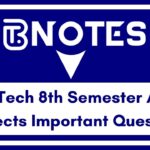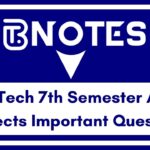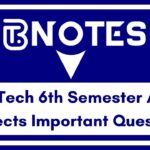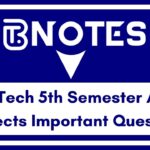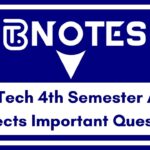The Bachelor of Technology (B.Tech) is a prestigious four-year undergraduate program that blends theoretical learning with practical applications in various engineering fields. The 2nd semester builds on the foundational knowledge introduced in the first semester, deepening students’ understanding of core sciences, mathematics, and engineering principles.
This syllabus represents a typical curriculum for the second semester across branches such as Computer Science, Mechanical, Civil, and Electrical Engineering. It is designed to strengthen analytical skills and prepare students for branch-specific studies in later semesters. While the content may vary slightly by institution, this overview captures the essence of a standard B.Tech 2nd semester experience.
B Tech 2nd Semester Syllabus
Duration: Approximately 5-6 months (including classes, labs, and exams).
Focus: Advanced foundational sciences, engineering basics, and skill development.
Theory Subjects
1. Engineering Mathematics – II
- Topics:
- Linear Algebra: Vector Spaces, Linear Transformations, Eigenvalues, and Eigenvectors.
- Differential Equations: First-Order, Higher-Order, and Applications.
- Laplace Transforms: Properties, Inverse Transforms, and Engineering Applications.
- Fourier Series: Periodic Functions, Convergence, and Applications.
- Objective: Enhances mathematical tools for solving engineering problems.
2. Engineering Physics – II
- Topics:
- Electromagnetism: Gauss’s Law, Faraday’s Law, Maxwell’s Equations.
- Quantum Physics: Wave-Particle Duality, Schrödinger Equation Basics.
- Solid-State Physics: Crystal Structures, Semiconductors.
- Thermodynamics: Laws, Heat Transfer Basics.
- Objective: Deepens understanding of physical laws applicable to engineering.
3. Basic Electronics Engineering
- Topics:
- Semiconductors: Diodes, Transistors, PN Junctions.
- Circuit Analysis: Amplifiers, Oscillators, Basic Gates.
- Electronic Devices: Rectifiers, Filters, Power Supplies.
- Digital Electronics: Binary Systems, Logic Gates.
- Objective: Introduces fundamental electronics concepts for all engineering fields.
4. Programming for Problem Solving
- Topics:
- Programming Basics: C Language (Variables, Loops, Functions).
- Data Structures: Arrays, Strings, Pointers.
- Control Structures: Decision Making, Iteration.
- File Handling: Input/Output Operations.
- Objective: Develops coding skills for technical problem-solving.
5. Engineering Mechanics
- Topics:
- Statics: Equilibrium, Trusses, Frames.
- Dynamics: Kinematics, Kinetics, Newton’s Laws.
- Friction: Laws, Applications.
- Centroids and Moments of Inertia.
- Objective: Provides principles for analyzing forces and motion in engineering.
6. Environmental Science
- Topics:
- Ecosystems: Structure, Function, Biodiversity.
- Pollution: Air, Water, Soil, Control Measures.
- Renewable Energy: Solar, Wind, Hydro.
- Sustainability: Concepts, Practices.
- Objective: Raises awareness of environmental issues in engineering contexts.
Practical/Lab Subjects
| Lab | Experiments/Activities | Objective |
|---|---|---|
| Physics Lab – II | Study of electromagnetic induction.Measurement of semiconductor properties.Verification of thermodynamic laws. | Applies advanced physics concepts practically. |
| Electronics Lab | Diode and transistor characteristics.Building basic circuits (e.g., amplifiers).Logic gate experiments. | Hands-on experience with electronic components. |
| Programming Lab | Writing C programs for loops and functions.Array and pointer-based coding.File handling exercises. | Enhances programming proficiency. |
| Engineering Mechanics Lab | Force equilibrium experiments.Friction coefficient determination.Moment of inertia calculations. | Practical application of mechanics principles. |
Assessment
- Theory: End-semester exams (typically 60-70% weightage) + Internal assessments (assignments, quizzes, midterms; 30-40% weightage).
- Practicals: Lab performance, viva voce, and lab records.
- Credits: Each subject usually carries 3-4 credits (theory) or 1-2 credits (labs), totaling around 20-24 credits for the semester.
Notes
- Variations: Some universities may include “Engineering Chemistry – II” or replace “Environmental Science” with a subject like “Basic Mechanical Engineering.”
- Branch-Specific: The syllabus remains general in the 2nd semester, with specialization starting typically in the 3rd semester.
Conclusion
The 2nd semester of the B.Tech program marks a significant step in a student’s engineering journey, bridging foundational knowledge from the first semester with more applied concepts. By covering advanced mathematics, physics, electronics, programming, and mechanics, it equips students with a versatile skill set essential for all engineering disciplines.
The inclusion of practical labs reinforces theoretical learning, fostering a hands-on approach that is crucial for future success. This semester solidifies the groundwork, enabling students to confidently transition into their chosen specializations in subsequent semesters while appreciating the interdisciplinary nature of engineering.
More Resource:

